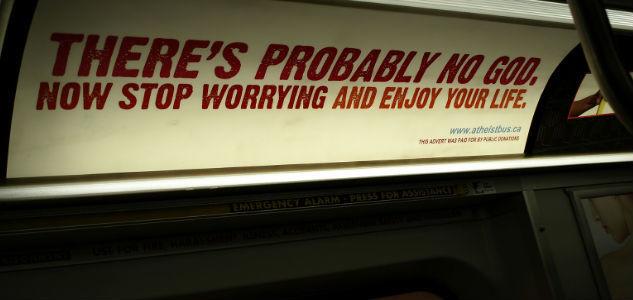
New non-religious lobby group for Americans supports atheists, agnostics, and others without religion | Democracy, elections, and voting
Pioneering Non-Religious PAC Backs First Six Candidates

Endorsements from Newly Formed Freethought Equality Fund PAC
WASHINGTON, Dec. 17, 2013 /PRNewswire-USNewswire/ — The Freethought Equality Fund PAC announced today its first slate of endorsements: U.S. Rep. Jared Polis (CO), U.S. Rep. Rush Holt (NJ), U.S. Rep. Bobby Scott (VA), U.S. House candidate Dr. Lee Rogers (CA), State Rep. Carolyn Tomei (OR), and State Rep. Juan Mendez (AZ).
The Freethought Equality Fund selects candidates for endorsement based on previous voting records or questionnaire responses that show a commitment to promote a more secular government and a will to protect the rights of all people, including the now 20 percent of Americans that don’t identify with any particular religion. “It’s long past due for our elected officials to stand up and advocate for humanistic values, and we will strongly support candidates that do,” says Freethought Equality Fund Coordinator Bishop McNeill.
Rep. Jared Polis is seeking re-election to Colorado’s 2nd District. The Freethought Equality Fund applauds Congressman Polis for his 100 percent score on the 2013 Congressional Scorecard. Rep. Polis has also been a leader in Congress in 2013 by co-sponsoring H. Res. 41, which sought to recognize Darwin Day as a national day of observance for celebrating science and reason held on or around Feb. 12, the birthday anniversary of evolutionary biologist Charles Darwin. Congressman Polis also sponsored an amendment which advocated for Humanist chaplains in the military. “As a member of the Jewish faith and a student of Jewish history, I know what it feels like to be a minority. I am proud to stand with humanist, atheist, and agnostic Americans to defend civil liberties for everyone and protect the separation of church and state,” said Congressman Polis.
Rep. Rush Holt is seeking re-election to New Jersey’s 12th District. Congressman Holt introduced the Darwin Day Resolution on the floor of the U.S. House of Representatives and has been a leader in Congress protecting scientific integrity. Rep. Holt also scored a perfect 100 percent on the 2013 Congressional Scorecard and was a co-sponsor of the amendment to allow humanist chaplains in the military.
https://freethoughtequality.org/about/
The mission of the Freethought Equality Fund (FEF) PAC is to change the face of American politics and to achieve equality by increasing the number of open humanists and atheists in public office at all levels of government. The FEF PAC is affiliated with the Center for Humanist Activism, which is the advocacy and political arm of the American Humanist Association.
The FEF PAC will provide nontheist Americans the opportunity to make their voices heard in the political process by supporting candidates who identify as humanist, atheist, agnostic, and who share our goals of protecting the separation of church and state and defending the civil liberties of secular Americans.
When people see respected ethical humanists and atheists serve in public office, this will begin to dispel many myths about nonbelievers. The FEF PAC will also support a number of candidates who identify as religious but who are leaders in supporting the rights of nonbelievers.
Michael Ossipoff says
Hi–
You’re right to oppose authoritarian things like forced or state-designated religious practice in schools. You’re wrong if you oppose public Christmas decorations.
A school has no business telling students when it’s time for them to pray. Of course there’s no reason why students shouldn’t be allowed to pray whenever _they_ want to, on campus, or to have meetings in school conference-rooms, during lunch-hours or non-school hours, just like any other organization.
I don’ think anyone wants to ban prayer in schools.
So you’re right, in matters of freedom, non-authoritariansm and equality. Those aren’t religous issues, and so people not sharing the same religious beliefs can agree on such matters.
Where you’re wrong is when you aggressively, intrusively,_promote_ your religious beliefs, by marching down the street with a banner stating your opinion about the matter of the existence of God, or have it posted on a public bus. When you do that, you’re no different from those denominations that go door-to-door, aggressively promoting their beliefs.
No, Atheism isn’t a religion. Yes, Atheism is a religious belief, a belief regarding a religious matter.
Atheism isn’t a religion, because one belief doesn’t constitute a religion. I don’t have a full definition of the word “religion”, but surely a religion must include various elements, address various questions or matters
An example of a religion would be Science-Worslhip, sometimes referred to as “Scientsm”. The trouble with that word is that a believer in Scientism would be a “Scientist”. But “Scientist” already has a diffferent meaning–a perfectly valid and secularly-derfined profession. So, instead of calling Science-Worship “Scientism”, I prefer calling it “Scientificism”. So a believer in the religion of Scientificism is a Scientificist.
You won’t find me marching down the street with a banner criticising or proclaiming disagreement with Science-Worship. That’s the difference between you and me.
In fact, even in this letter, I’m not proclaiming a religious belief, except that i do hereby state that I don’t believe in Scientificism, though I like science.
Scientificism is more than a belief that science is valid in its area of legitimate applicability. Scientificists have a religious belief in a more all-encompassing applicability of science.
Regardsing the definition of “Atheism”. It’s currentlly fashionable for some people to call themselves Atheists, while espousing only Agnosticism. Defending that, such people say that Atheists should be the ones to define Atheism. Of course, within yourselves, in your Scientiicist worship meetings, you can call yourselves whatever you want to.
But communication, in general, requirs agreed-upon meanings. “Atheism” derives from two words or roots which, together, mean “not God”, or something to that effect. The definition of Atheism as a positive belief in a non-existence, is long-established and well-established. We already have a word for a mere absence of belief on that question: “Agnosticism”.
But I admit that many, probably most or all, self-declared “Atheists” express, advocate or promote actual Atheist beliefs some of the time. So maybe they could best be called “Agnosto-Atheists”, because their position seems to change back and forth over time.
Strictly speaking, the “probably” in your banner makes it an Agnostic expression rather than an Atheist one. Nevertheless, the “probably” also amounts to an expression of opinion on a matter on which Agnosto-Atheists” claim to have no belief.
Of course the God that Agnosto-Atheists are talking about is the one espoused by fundamentalists. Before making any blanket statement about “probably”, it would be better to know just what you’re speaking of the probable existence of. Do you really know what each Deist or Theist means by God, enabling you to make a blanket statement about their correctness?
You tell Theists/Deists to not to worry–But you’re the one who feels a need to march down the street with a banner.
Couldn’t you just not-believe in private, without challenging something that you don’t really know the nature of (because not all Deists and Theists are the fundamentlists who espouse the belief that you disagree with)?